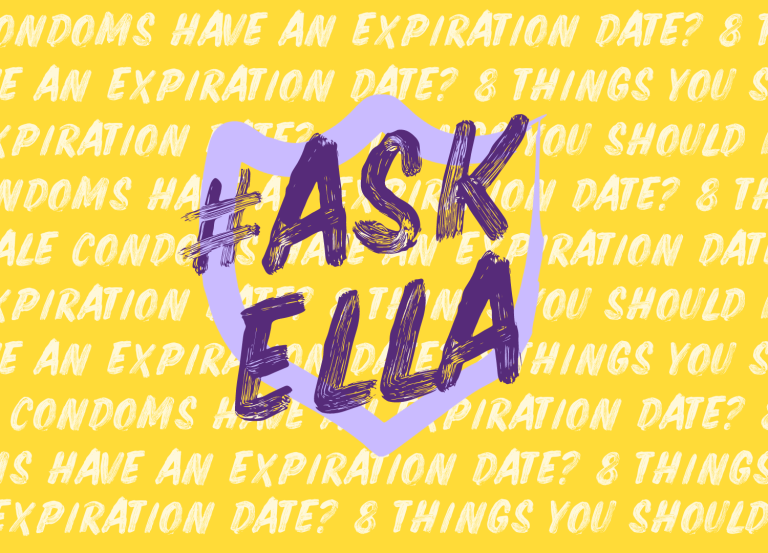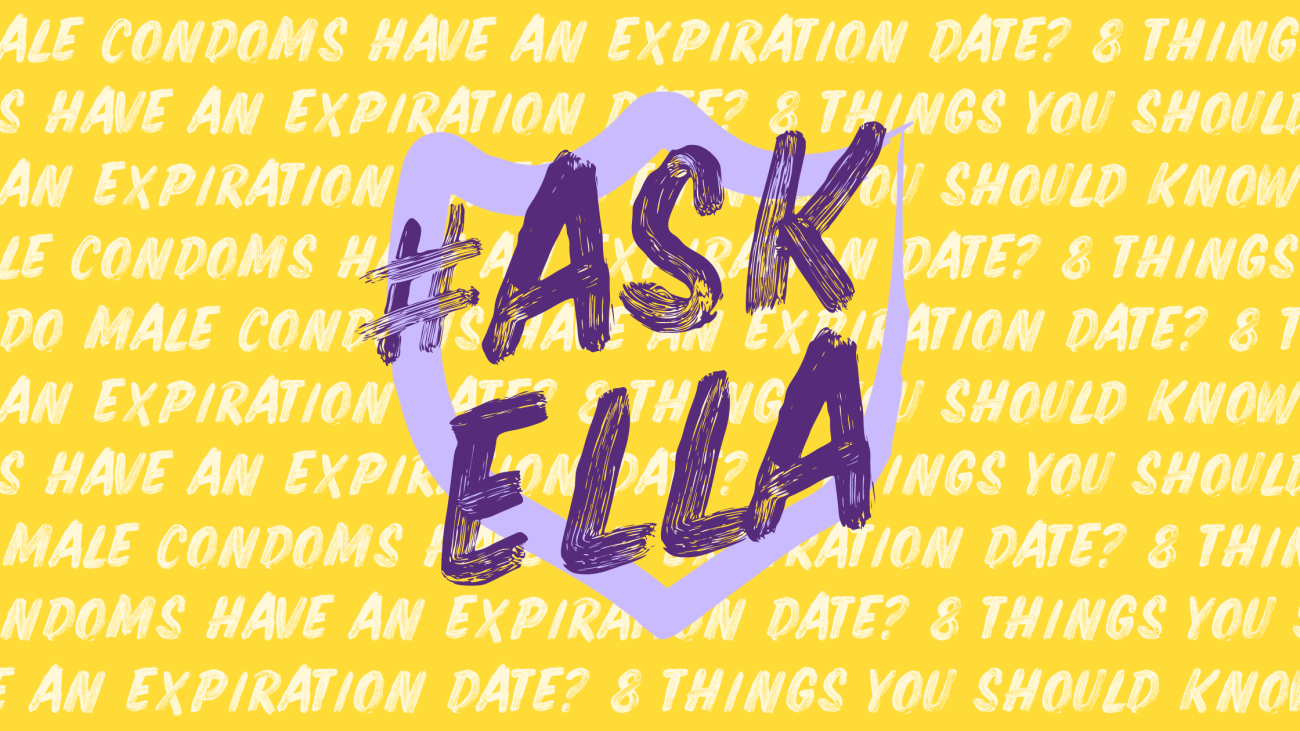Do male condoms have an expiration date? 8 Things You Should Know
If you use male condoms as your main form of contraception, you might be wondering whether they have an expiration date and, if so, how bad it would be to use them once they’ve expired. Perhaps you’ve met someone you really like and the only condom you have available expired last year. What could potentially happen if you use it?
We want to make sure you have all the information that you need to make an informed decision about your sexual health. We’re not interested in judging or preaching; we just want you to feel empowered and clued up so you can best protect your own sexual health and the sexual health of those you are intimate with.
So do condoms have an expiration date, why do they have an expiration date and what happens if you use condoms that have expired?
1. How long do condoms last?
When used correctly, condoms are around 98% effective. With typical use, that efficacy goes down to below 90%. So what makes condoms less effective? Part of it is that condoms, like many other things, can go bad. So how long do condoms take to expire?
“It depends on many things including how they are stored, but with proper storage, male condoms can be effective for up to three years to five years, depending on the manufacturer and expiry date,” says Dr. Hana Patel*, NHS GP and GP Medico-Legal Expert Witness.
How long a condom lasts depends on what it’s made out of and how it’s stored. Latex and polyurethane condoms which do not contain spermicide can last up to five years when stored correctly, but latex and polyurethane condoms which do contain spermicide only last up to three years. This is because the spermicide can degrade the material the condom is made out of, which makes them less effective over time. Animal skin condoms are less effective because they tend to have tiny holes in them, and their estimated shelf life is one year.
Make sure that you check the expiration date on the condom that you’re using before you use it, as its effectiveness will partly depend on when it was made and how it’s been stored.
2. Condoms are perishable
With proper storage, male condoms can last up to five years. If they are not stored correctly, they may become less effective and more likely to break. Places to avoid storing condoms are bathrooms (where moisture can make it less effective), in direct sunlight and in car glove compartments (where heat can cause damage).
It’s really important that you store your condoms correctly, which means keeping them in a cool, dry place such as a cupboard or drawer in your bedroom.
3. Why do condoms expire?
Many things have expiration dates, and condoms are no different. “Condoms have a use-by date on the packaging,” says Dr Hana Patel. “Do not use out-of-date condoms. Condoms are often made of latex, and can break down, meaning that they are less effective against sexually transmitted infections and pregnancy.”
No matter what material the condom is made out of, over time that material is likely to break down and become brittle, making it more likely to break if it experiences friction – which it will if you use it to have sex. If the condom is weaker, it is more likely to tear or break, which puts you at greater risk of pregnancy or sexually transmitted infection if you don’t know your partner’s status.
4. Each condom must only be used once
“A condom must not be used more than once. Use a new one each time you have sex,” says Dr Hana Patel.
Condoms are not reusable. You should use the condom the whole time you’re having sex, so don’t start having sex without it and then put one on later. You may, however, want to change condoms to avoid infection if you are switching from one type of sex to another (e.g. from vaginal to anal), or if you have any concerns that the condom you’re using may have been damaged.
You should also only use one condom, rather than two or more, as using multiple condoms at once makes them more likely to break.
5. Condoms should meet safety standards
“Always use condoms that have the European CE mark or the UKCA mark on the packet. This means they’ve been tested to high safety standards,” says Dr Hana Patel.
The efficiency of condoms is tested by taking a random sample from the same batch and filling them with air until they pop. If the condom breaks too easily, the whole batch is discarded. Try to avoid joke or novelty condoms unless they have these marks to show they’ve been approved for safety.
6. What happens if you use an expired condom?
Using an expired condom is not recommended as they are likely to be less effective, so using them will put you at greater risk of sexually transmitted infections (STI’s), pregnancy and, in the case of condoms containing spermicides, they can also irritate the genitals of both parties. If you’re planning on having sex in advance, check the expiration date on your condoms and, if they have expired, buy some new ones.
We understand that if you are in the heat of the moment and the only contraception you have is an expired condom that it can be really tempting to use it, but an expired condom is less likely to be effective and so ideally you would wait to have penetrative sex until you have a more effective method of contraception available.
7. Can expired condoms cause infection?
Expired condoms that contain spermicide can cause a burning and irritated feeling in the penis and vagina, and so using them can be unpleasant as well as not effective. Condoms which do not contain spermicide may still feel uncomfortable, brittle, have less lubricant and, crucially, will be more likely to break or tear.
“Expired condoms can break down and start to get holes in them, meaning that it is a less effective barrier, therefore less protective against sexually transmitted infections and pregnancy,” says Dr Hana Patel.
8. Should I carry a condom in my wallet or pocket?
While it may seem like a good idea to carry a condom in your wallet or pocket, these places are actually not great for the integrity of the condom. This is because wallets and pockets tend to be warm, and the warmth may weaken the latex and make the condom more likely to break. Carrying a condom in a place which is frequently moving, like a pocket or a wallet, can further damage the condom and, if the condom comes in contact with something sharp, it could be pierced.
If you want to carry a condom around with you and you’re not sure when you’re going to use it, consider putting it in its own container (like a small box or bag) within your larger bag to help keep it safe.
If you have used an expired condom which has broken, torn or become lost – or if you simply got caught up in the moment or another method of contraception failed – then you may want to seek emergency contraception to help prevent unplanned pregnancy. ellaOne contains ulipristal acetate which is 2.5x more effective than levonorgestrel when taken within 24 hours.
If you’ve taken the morning after pill, why not share your story by clicking the button below to help reassure others that they are not alone.
*Dr Hana Patel does not endorse any products or brands
ellaOne® 30mg film-coated tablet contains ulipristal acetate and is indicated for emergency contraception within 120 hours (5 days) of unprotected sexual intercourse or contraceptive failure.
References
https://www.health.state.mn.us/diseases/hiv/partners/storage.pdf
https://www.verywellhealth.com/three-things-to-do-with-expired-condoms-3133128
https://metro.co.uk/2018/08/24/why-you-shouldnt-keep-a-condom-in-your-wallet-or-pocket-7879336/
https://globalprotection.com/pages/condom-testing
https://www.healthline.com/health/healthy-sex/do-condoms-expire#expired-condom-vs-no-condom




